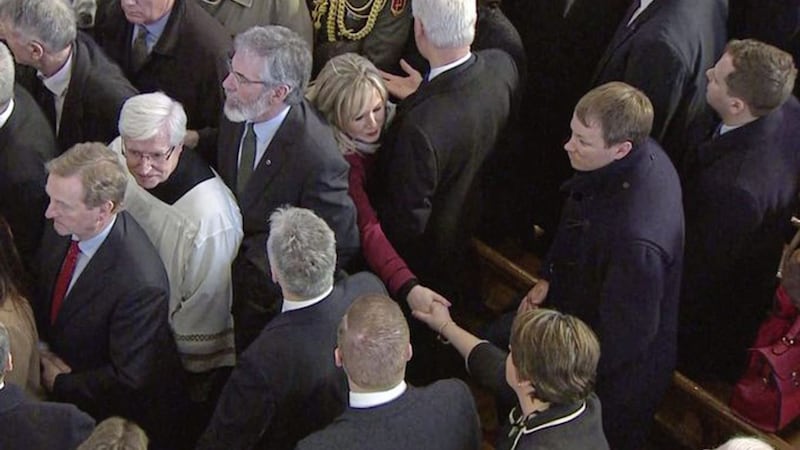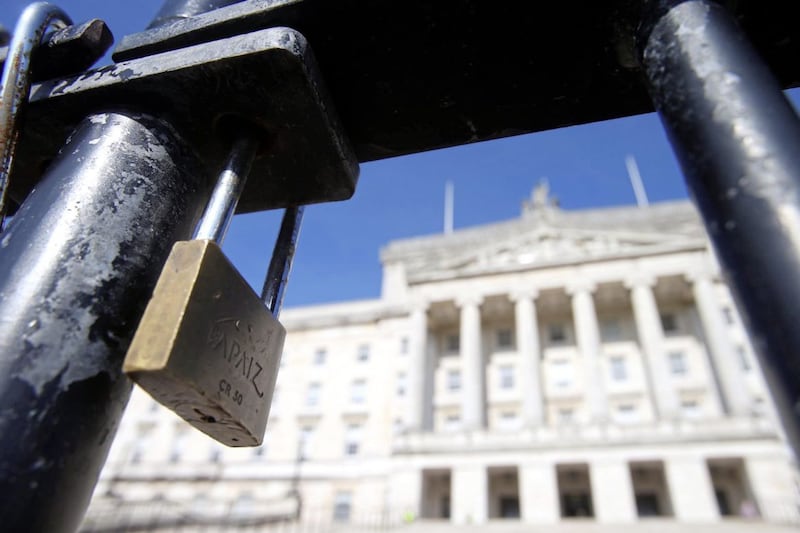THE expression "Mourn - and then onward!" came to mind after the death of Martin McGuinness and my initial recollection was that it had been coined by the legendary trade union activist Joe Hill.
But our old friend Google quickly reminded me that it was, in fact, the title of a poem written by William Butler Yeats after the death of Charles Stewart Parnell.
The passing of the leader of constitutional nationalism in 1891 came as a great shock to his followers, not unlike the effect in our own time that McGuinness's death has had on the republican and broad nationalist community in the north.
Although Parnell confined his guerrilla tactics to the political sphere, the sentiments in the Yeats poem could easily be applied today: "The man is gone who guided ye, unweary,/Through the long bitter way."
The correct phrase attributed to Joe Hill is, in fact, "Don't mourn: organize!". It is a shortened version of a message contained in a telegram he sent from prison in Utah before he was executed by firing squad in 1915.
It's a directive one imagines McGuinness would have been happy to send out himself as he lay dying in his native city.
But if we're in the business of comparisons, two figures with whom the late deputy first minister had greater similarities were Michael Collins and Seán Lemass.
Since the former is a Fine Gael icon and the latter a hero of Fianna Fáil, some members of these two parties might not appreciate having those names linked to a present-day Sinn Féin leader .
But like McGuinness, Collins and Lemass had very formidable histories as armed revolutionaries.
Collins was the mastermind of the shootings on the morning of Dublin's Bloody Sunday in November 1920, when 14 suspected British agents were killed and another fatally wounded by a squad generally believed to include Seán Lemass.
The two men later took opposing sides in the Civil War over the Anglo-Irish Treaty, but Lemass survived to make a huge contribution to the economic and social development of the State that Collins had helped to found.
Collins, Lemass and McGuinness all began as out-and-out revolutionaries, determined to inflict maximum casualties on the forces of the British Crown.
'The Big Fellow' was 25 years of age when he took part in the Easter Rising and Lemass, who served with him in the General Post Office that week and carried the wounded James Connolly on a stretcher, was still three months shy of his 17th birthday.
For his part, we are told that Martin McGuinness went from street protester to IRA activist in his late teens.
In each case, youthful idealism was combined with a determination to "drive the Brits out" so that this island could at last be free.
Each of them, in turn, discovered that it wasn't quite as simple as that.
Sadly, Collins was assassinated at 31 years when he still had much to give to the country he loved, but Lemass survived long enough to cross a political Rubicon in January 1965 when he travelled north to meet Prime Minister Terence O'Neill at Stormont, replacing decades of rhetoric with practical engagement.
Ian Paisley Sr notoriously threw snowballs at the Lemass entourage. Imagine how 'The Doc' would have reacted if you told him that, in the same location 42 years later, he would be unveiled as joint leader of a power-sharing administration with former IRA leader Martin McGuinness.
Another famous quote from Yeats comes to mind: "Out of Ireland have we come./Great hatred, little room".
The point is, of course, that this island is much too small for the continuance of sectarian animosities.
There is a growing school of thought that a United Ireland is inevitable at some future stage but talking it up will only delay its occurrence.
The correct theme-song for the current scenario is Getting To Know You, not A Nation Once Again, much as I like the Thomas Davis lyrics.
My last conversation with Martin McGuinness took place on the fringes of last November's All-Island Civic Dialogue on Brexit at the Royal Hospital Kilmainham.
His power-sharing partners were not in attendance but he was still hopeful there could be a combined approach to the consequences of the referendum.
Even those who voted for Brexit would have to admit there are potential downsides, so the lack of a united front on, for example, the European peace funds and implications for the farming community north and south wouldn't make sense. The absence of a power-sharing executive doesn't help.
The courageous decision by Arlene Foster to attend the McGuinness funeral looked like it might just possibly be a game-changer.
One imagines McGuinness would have wanted his followers to reciprocate her brave gesture. As the Yeats poem concludes: "Mourn - and then onward, there is no returning/He guides ye from the tomb;/His memory now is a tall pillar, burning/Before us in the gloom!"
@ddebreadun








